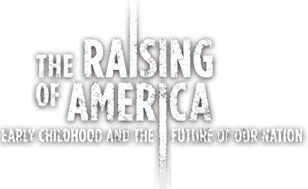The Veto That Killed Childcare
to watch purchased videos
Add to Your Favorites
Remove from Your Favorites
Clip Transcript
NARRATOR: A young conservative White House Aide named Patrick Buchanan was putting a different spin on the child development bill.
Patrick Buchanan, White House Adviser 1969-1974:
I did call it the most radical piece of legislation to come out of this Congress of the United States. And we saw that over in the Soviet Union. Taking kids from their parents and putting them into these institutions and having them educated there rather than at home, didn’t seem to me to be traditionally American.
Animation: Buchanan Contact Sheet
Patrick Buchanan:
I was very close to the President, and he’d look to me to tell him what the thinking and feeling was of the Conservative Movement. All these group were basically the elite, if you will, the political elite of the right.
Still: Buckley’s Manhattan townhouse on Park Ave.
NAR: One group of powerful, elite conservatives known as the Manhattan 12 was so incensed by Nixon’s tilt towards the center they planned to introduce a right-wing Republican challenger to Nixon in the 72’ primary.
Still: Nixon White House
Patrick Buchanan:
Nixon had imposed wage and price controls, he had announced he was going to China. So he had a real problem with the Conservative Movement.
Archival Footage: Buchanan putting memo on Nixon’s desk.
NAR: The child care bill became a lightning rod for conservative attacks. With Buchanan’s support, the Manhattan 12 launched a campaign of editorials attacking the bill, and demanding a presidential veto.
Patrick Buchanan:
If I saw editorials on this issue, I could write a memo to the President of the United States saying: “This is developing, this is building, we’re up for re-election and we’ve got a problem here.”
NAR: Buchanan made sure that Nixon could see there was a real political threat—and a political opportunity. The solution? Nixon would veto the bill, and Buchanan would write the message himself, in language so strong it would not only extinguish the idea once and for all—it would electrify his right wing base.
Archival Nixon audiotape
Pres. Nixon:
We’re going to take a little heat from the left, so we might as well get credit from right.
Aide (Charles Colson):
Well we discussed that last night Mr. President, and of course I asked Pat Buchanan to get in because the words we use are very, very important. We want to be sure we’re against certain principles—the conservatives are more interested in philosophy.
Pres. Nixon:
I know. They’re more interested in philosophy than the programs.
Patrick Buchanan:
I said I want to write a veto at the same time which is political and ideological and which hits the Child Development Act at its core.
Sid Johnson, Legislative Aide to Senator Mondale, 1969-1976:
And that’s exactly what he did, and he hit a grand slam.
NAR: On Dec 9th, 1971, Nixon released his veto message.
Archival footage, Dan Rather news broadcast 12/9/71:
The President says the two billion dollars that would be spent in the first year for child care would be, as he put it, a long leap into the dark. One of his other objections (trails off )…
Patrick Buchanan (reading):
This is the heart of it: for the federal government to plunge headlong financially into supporting child development would commit the vast moral authority of the national government…
Phyllis Schlafly, Founder and President, Eagle Forum
…to the side of communal approaches to child rearing over and against the family centered approach.
PRODUCER: Do you agree with that?
Phyllis Schlafly
Yes. Yeah. Yeah. Oh, it’s great.
Archival footage, interview with Rep. John Brademas (D-Indiana 1959-1981) 12/9/71:
With one stroke of the pen, President Nixon has broken his own promise to support child development, and he has greatly damaged the chances for the children of working families as well as poor children to have an opportunity for the kind of healthful and stimulating development which the President at one point in time pledged his administration to support.
Archival Footage: Nixon at podium, speech about children
Marian Wright Edelman, President, Children’s Defense Fund:
The veto really did hurt. It said it was undermining the family when the family and parent role was central to everything we’d talked about. It said it was going to communalize family life.
Robert Self, Historian:
Nixon’s veto message is really the first time that an American President, the leader of one of the national parties reaches out and takes that rhetoric and nationalizes it, this rhetoric about the threat to the American family.
Sid Johnson:
And suddenly the right wing had a new and powerful organizing tool.


